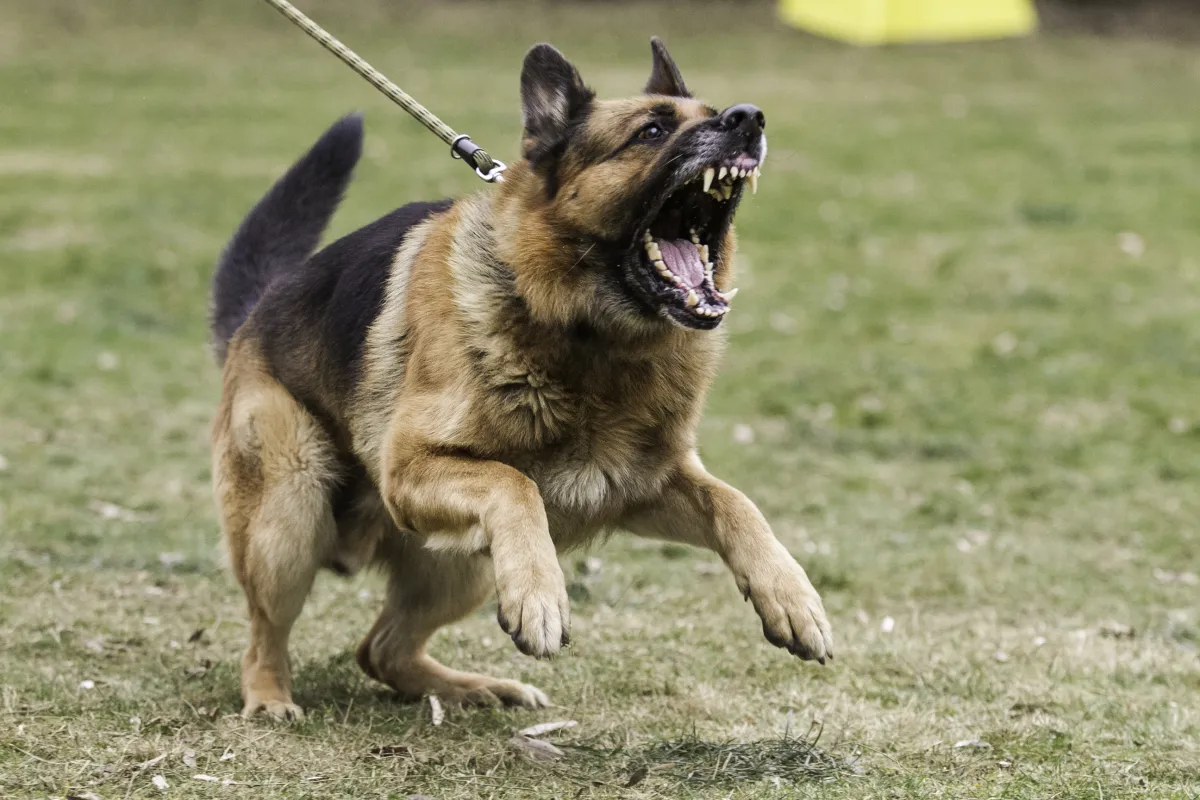Learn how to recognize signs of aggression in German Shepherds and implement effective strategies to address snarling and anger. Discover tips for training, socialization, and creating a balanced relationship with your GSD.
I'll never forget the day I first witnessed my German Shepherd, Max, displaying aggressive behavior. It was a sunny afternoon at the dog park when suddenly, Max let out a deep, menacing snarl towards another dog. His hackles were raised, teeth bared, and eyes intensely focused on his perceived threat. As a new German Shepherd owner, I was taken aback by the intensity of his reaction. It was at that moment I realized the importance of understanding and addressing snarling and anger in these magnificent dogs.
The Protective Nature of German Shepherds
German Shepherds are renowned for their intelligence, loyalty, and protective instincts. These traits make them excellent family companions and well-suited for roles in law enforcement and military. However, their strong desire to protect their loved ones can sometimes manifest as aggressive behavior if not properly managed.
In my opinion, it's crucial for German Shepherd owners to recognize that snarling and displays of anger are often rooted in their natural instinct to defend their territory and family. By understanding this inherent trait, we can approach their training and socialization with empathy and patience.
Recognizing Signs of Aggression
One of the first steps in addressing aggressive behavior in German Shepherds is learning to recognize the warning signs. Some common indicators include:
- Vocal cues such as growling, snarling, or aggressive barking
- Stiffened body posture with raised hackles
- Bared teeth and direct, intense eye contact
- Lunging, snapping, or attempting to bite
According to a study published in the Journal of Veterinary Behavior, "German Shepherds were found to be more likely to show aggressive behavior towards unfamiliar people and dogs compared to other breeds". This highlights the importance of early socialization and training to prevent the development of aggressive tendencies.

The Role of Training and Socialization
Proper training and socialization are essential for raising a well-balanced German Shepherd. Positive reinforcement techniques, such as rewarding desired behaviors with treats and praise, can help establish a strong bond between dog and owner while discouraging aggressive reactions.
Renowned dog trainer, Cesar Millan, emphasizes the significance of consistent leadership and clear communication in managing German Shepherd behavior. "German Shepherds need a strong pack leader who can provide guidance and structure. Without proper leadership, they may attempt to take on the role themselves, leading to aggressive displays," Millan explains .
Exposing your German Shepherd to a variety of people, animals, and environments from a young age can also help prevent fear-based aggression. Gradual and controlled exposure to new stimuli, paired with positive experiences, can build their confidence and reduce reactive behavior.
Providing Mental and Physical Stimulation
German Shepherds are highly intelligent and active dogs that require regular mental and physical stimulation to thrive. Lack of adequate exercise and mental engagement can lead to frustration, pent-up energy, and aggressive outbursts.
Incorporating activities such as daily walks, running, fetch, and puzzle toys can help keep your German Shepherd mentally and physically satisfied. The German Shepherd Dog Club of America recommends "a minimum of 30 minutes to an hour of exercise per day for adult German Shepherds" .
Engaging in obedience training sessions not only reinforces good behavior but also provides mental stimulation and strengthens the bond between you and your dog. Consistently practicing commands like "sit," "stay," and "heel" can improve your German Shepherd's focus and impulse control, reducing the likelihood of aggressive reactions.
Seeking Professional Help
In cases of severe or persistent aggression, it's crucial to seek the guidance of a professional dog trainer or behaviorist. These experts can assess the specific triggers behind your German Shepherd's aggressive behavior and develop a tailored training plan to address the issue.
The International Association of Animal Behavior Consultants (IAABC) is a reputable organization that can help connect you with certified professionals in your area . Working closely with a qualified trainer can provide you with the tools and techniques necessary to manage and modify your German Shepherd's aggressive behavior effectively.
Conclusion
Snarling and displays of anger in German Shepherds can be concerning for owners, but with proper understanding, training, and management, these behaviors can be effectively addressed. By recognizing the protective nature of the breed, implementing positive reinforcement training, providing adequate mental and physical stimulation, and seeking professional help when needed, you can foster a well-balanced and harmonious relationship with your German Shepherd.
Remember, every dog is unique, and patience, consistency, and love are key in shaping their behavior. With dedication and the right approach, you can help your German Shepherd become a confident, well-mannered, and loving companion.
